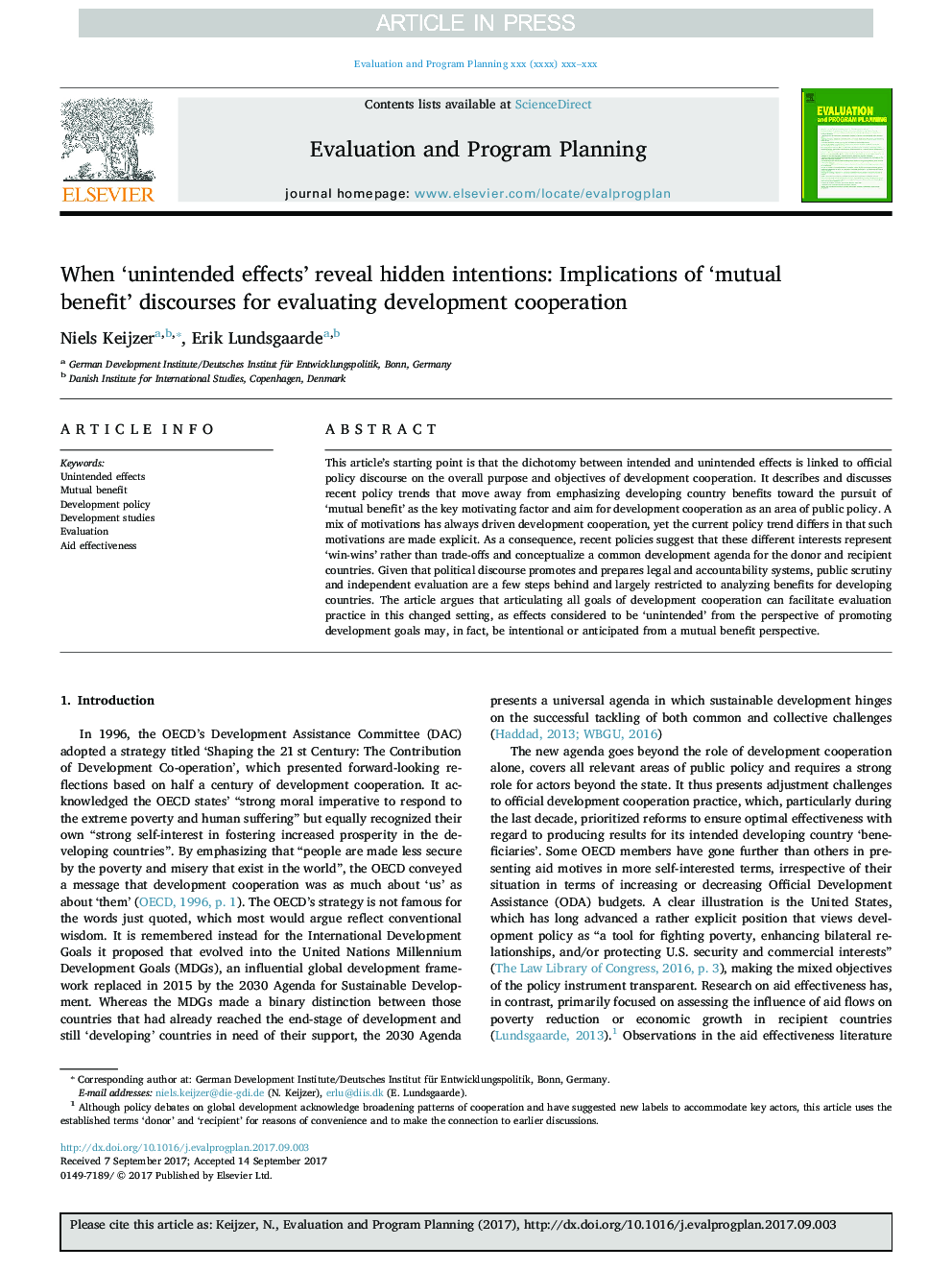| Article ID | Journal | Published Year | Pages | File Type |
|---|---|---|---|---|
| 6792139 | Evaluation and Program Planning | 2018 | 8 Pages |
Abstract
This article's starting point is that the dichotomy between intended and unintended effects is linked to official policy discourse on the overall purpose and objectives of development cooperation. It describes and discusses recent policy trends that move away from emphasizing developing country benefits toward the pursuit of 'mutual benefit' as the key motivating factor and aim for development cooperation as an area of public policy. A mix of motivations has always driven development cooperation, yet the current policy trend differs in that such motivations are made explicit. As a consequence, recent policies suggest that these different interests represent 'win-wins' rather than trade-offs and conceptualize a common development agenda for the donor and recipient countries. Given that political discourse promotes and prepares legal and accountability systems, public scrutiny and independent evaluation are a few steps behind and largely restricted to analyzing benefits for developing countries. The article argues that articulating all goals of development cooperation can facilitate evaluation practice in this changed setting, as effects considered to be 'unintended' from the perspective of promoting development goals may, in fact, be intentional or anticipated from a mutual benefit perspective.
Keywords
Related Topics
Health Sciences
Medicine and Dentistry
Public Health and Health Policy
Authors
Niels Keijzer, Erik Lundsgaarde,
